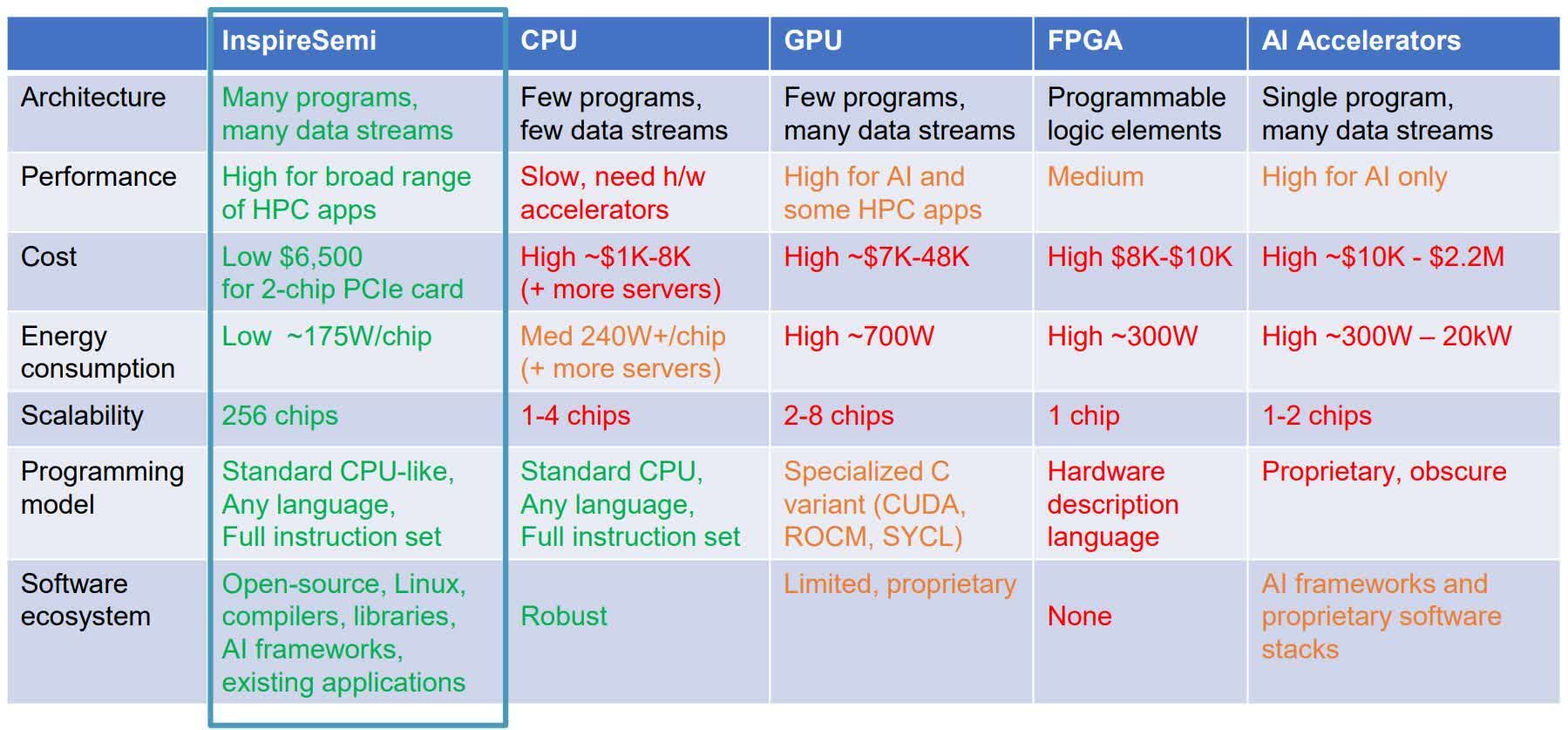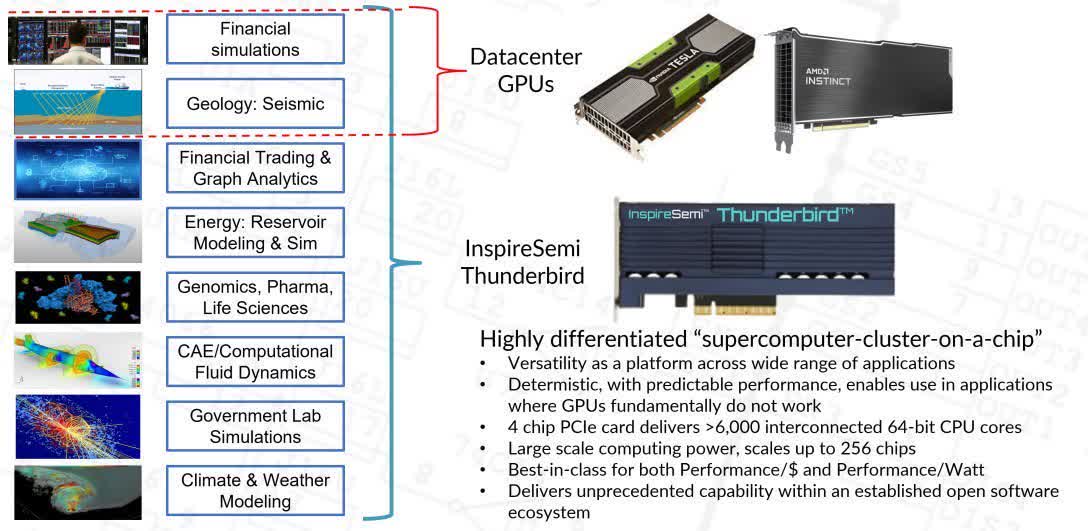Something to look forward to: InspireSemi is making a significant gamble on its “supercomputer-on-a-chip” product named Thunderbird. The company claims that using open-source RISC-V architecture and agnostic software compatibility makes its PCI add-in card more cost-effective, accessible, and efficient compared to its competitors.
InspireSemi, a semiconductor company based in Austin, announced the completion of its first Thunderbird “supercomputer-on-a-chip” which consists of 1,536 64-bit superscalar RISC-V CPU cores. Up to four chips can be mounted on a single accelerator card, resembling the form factor of a GPU. This setup totals 6,144 cores per card and offers scalability to multi-processors in a single cluster connected via high-speed serial interconnect.
That sounds like substantial computing power, but who is the target audience? InspireSemi states that their product caters to several essential HPC workload areas.
Thunderbird employs standard CPU programming models and compiles without necessitating workloads on custom platforms like Nvidia’s CUDA or AMD’s ROCm. This implies that existing HPC workloads operating on CPUs should require minimal to no custom code to run on Thunderbird. Additionally, the product integrates seamlessly with existing server infrastructure as it functions as a PCI add-on card, thereby enabling InspireSemi to reach customers who may not have the resources to build new infrastructure and facilities.
InspireSemi notes that the open-source design and software agnosticism of the processor enable them to target diverse industries: “Thunderbird accelerates many critical applications in significant sectors that other approaches do not, including life sciences, genomics, medical devices, climate change research, and applications requiring deep simulation and modeling,” said the company’s founder and CTO, Andy Gray.
Thunderbird aims to inherit the power efficiency inherent to RISC-based architecture. InspireSemi claims a 30-60% power efficiency improvement compared to similarly capable solutions. One benchmark is up to 24 FP64 TFLOPS at 50 GFLOPS/W (480W). Compared to Nvidia’s Ampere A100 at 19.5 FP64 TFLOPS, this seems promising, especially considering that Thunderbird’s prices would start at $6,500.
The rapid adoption of open-source solutions is noteworthy. The Unified Acceleration Foundation’s (UXL) mission is to create universal standards for vendor-agnostic hardware and software, with Intel significantly contributing through its oneAPI framework.
If open-source initiatives aimed at building a more open platform continue to thrive, companies like InspireSemi may have a promising future.

